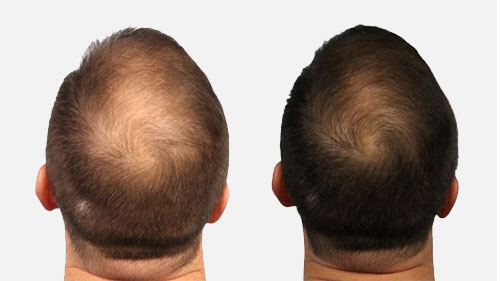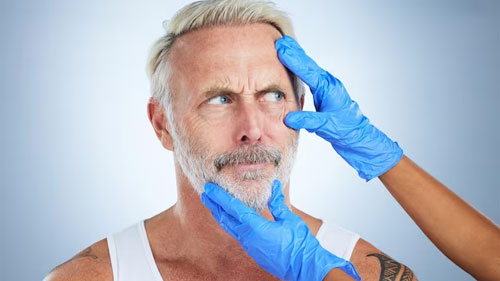 If the evidence of hair loss is clear to see in your shower drain and on your hairbrush, you may be chalking it up to a variety of factors. Male and female pattern baldness, extreme stress, drastic weight loss, and constant heat treatment are just some of the common causes of thinning hair, and for some, a lack of vibrancy and shininess in their hair can be attributed to the simple fact of age.
If the evidence of hair loss is clear to see in your shower drain and on your hairbrush, you may be chalking it up to a variety of factors. Male and female pattern baldness, extreme stress, drastic weight loss, and constant heat treatment are just some of the common causes of thinning hair, and for some, a lack of vibrancy and shininess in their hair can be attributed to the simple fact of age.
Men and women may vary considerably when it comes to specific hair care products, but just about everyone with hair uses some form of a shampoo. Though people don’t typically think of shampoo when they think of hazardous forms of hair treatment, your shampoo might actually be the problem if your hair is more brittle than usual or your scalp is irritated.
Shampoos are made with a wide variety of different ingredients geared toward an even wider variety of special functions, including dandruff care, color protection, volume enhancement, and many more. The types of ingredients in shampoos differ from company to company, and many shampoo brands pride themselves on their lack of harmful chemicals and all-natural ingredients. If you’ve never even thought to check your shampoo’s ingredient list, however, you’re not alone – public awareness surrounding the quality of our hair care is a fairly new concept, but a very important one.
Many popular shampoo brands utilize chemicals in their formulas that can lead to hair loss, scalp irritation, and worse. Next time you’re browsing for a new shampoo, make sure your choice doesn’t contain any of the following chemicals:
Sulfates. Sulfates are what give shampoo their foamy texture and are genuinely high-performing cleansing agents. However, sulfates tend to be such powerful cleaners that they completely strip the natural oils from your hair, causing it to become weakened and break easily. The presence of sulfates in your hair can also stunt hair growth over time and inflame your scalp, leaving it irritated and dry.
Silicones. You may be wondering; how could silicone possibly be used in a hair care product? Truthfully, silicone is a primary ingredient in many shampoos and conditioners because it imitates natural hair oils, creating an illusion of shiny, healthy hair. However, don’t be fooled by the facade-shampoos that contain silicone can clog your scalp’s pores, severely drying out both your scalp and your hair after extended use. Silicone is suspected to have toxic properties and has even been classified by the Canadian government as a potential toxin to be further studied. Silicone is less harmful in more occasional-use hair products like pomades and heat protecting gels, mostly due to the fact that these products aren’t used near the scalp.
Parabens. Parabens have been used in hair care products and other cosmetics as a preservative, helping to keep products usable for months or even years at a time. There are multiple harmful compounds categorized within the paraben family including methylparaben, propylparaben, and ethylparaben, and parabens have been linked to different types of cancers as well as skin irritation and hormonal imbalance, two common factors when it comes to hair loss. At this point, many hair care companies have already discontinued their use of parabens now that more scientific evidence is available concerning their health risks; however, you should still check the label before you buy a new shampoo brand just in case, especially if the brand comes from overseas.
Isopropyl alcohol. If you knew that your shampoo brand’s formula had an ingredient in common with wood finish, antifreeze, and shellac, would you continue to use that shampoo? If the answer is a resounding no, make sure to look out for isopropyl alcohol on your shampoo bottles. This ingredient strips your hair of its naturally occurring oils similarly to sulfates and prevents your hair from continuing to grow healthily if you use it over an extended period of time.
Now that you know of a few key ingredients to avoid in your shampoo, you may be wondering what ingredients should be included in order to prevent or reverse hair loss. There are many natural, non-toxic substances to look out for on the label that can leave hair soft, hydrated, and healthy while also supporting growth, including biotin, calcium, zinc, and collagen. You could also consider trying DHT blocking shampoo, which is designed to inhibit DHT, a powerful hair loss hormone, in both men and women. This product also works to reduce scalp inflammation and boost cellular metabolism to stimulate healthy hair growth.
While the ingredients within your hair care products can make a huge difference regarding the health of your hair and scalp, make sure to also limit harmful practices such as chemical dyeing and heat treatments.




